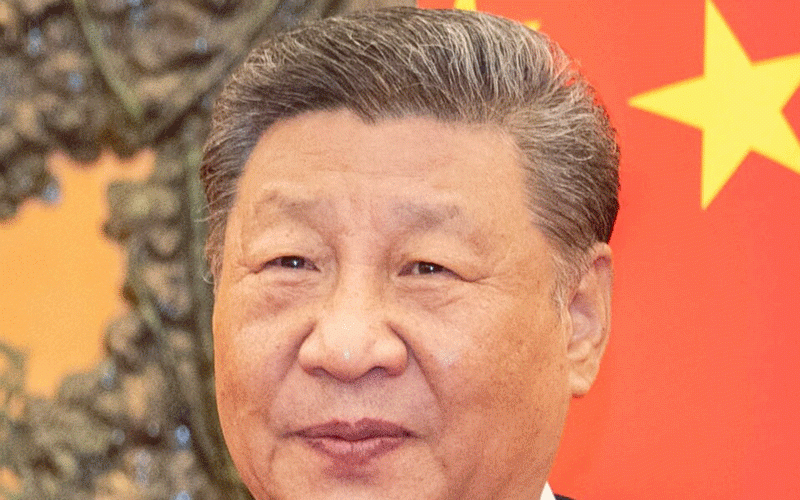
The African continent, a tapestry of vibrant cultures and immense natural wealth, finds itself at the epicenter of a multifaceted crisis.
Marked by its geographical positioning, it bears the brunt of climate change’s harshest realities, exacerbated by socio-political complexities.
While the Great Lakes region, a source of life and sustenance, endures, a confluence of water poverty, environmental degradation, and political inertia threatens the continent’s very foundation.
Africa’s vulnerability is deeply rooted in its colonial past, a legacy that continues to shape its present.
The scramble and partition, followed by decades of exploitation, left the continent underdeveloped and reliant on resource extraction.
This history has fostered a political landscape often characterized by instability, corruption, and a focus on power consolidation rather than sustainable development.
Leaders, entrenched in positions of authority, prioritize political agendas over addressing the pressing environmental challenges that threaten the livelihoods of their people.
Zimbabwe, like many African nations, exemplifies this struggle.
- Mavhunga puts DeMbare into Chibuku quarterfinals
- Bulls to charge into Zimbabwe gold stocks
- Ndiraya concerned as goals dry up
- Letters: How solar power is transforming African farms
Keep Reading
The country’s political landscape, often dominated by protracted power struggles and electoral maneuvering, diverts crucial resources and attention away from addressing climate-induced water scarcity and environmental degradation.
Ministers responsible for water management are frequently absent from critical meetings, attending political gatherings instead.
This prioritisation of politics over practical solutions hampers the implementation of vital water management programs.
The consequences are dire. Climate change, manifested in erratic rainfall patterns, prolonged droughts, and increased temperatures, has severely impacted Zimbabwe’s water resources.
The nation is experiencing increased desertification, particularly in regions like Beitbridge, where arid conditions hinder agricultural productivity and exacerbate poverty.
The impact extends beyond agriculture, affecting access to clean drinking water, sanitation, and industrial development.
However, amid these challenges, glimmers of hope emerge. International collaborations, such as the Zamcom and FAO memorandum of understanding on water resources management in the Zambezi Valley, and the establishment of the Limpopo Watercourse Commission (LIMCOM), demonstrate a growing recognition of the need for regional cooperation. These initiatives aim to foster sustainable development, enhance climate resilience, and improve water management practices.
Globally, other nations are actively combating similar challenges, offering valuable lessons for Africa.
In Singapore, for example, a nation with limited natural water resources, innovative solutions like rainwater harvesting, desalination, and water recycling have transformed the country into a water-secure nation.
Israel, faced with arid conditions, has pioneered advanced irrigation techniques and water conservation technologies, maximising agricultural output with minimal water usage.
In the Netherlands, a nation vulnerable to rising sea levels, extensive infrastructure projects like dikes and storm surge barriers, coupled with integrated water management strategies, have mitigated the impacts of climate change.
These success stories highlight the importance of investing in infrastructure, technology, and sustainable water management practices.
Africa can learn from these experiences by prioritizing integrated water resources management, investing in climate-resilient infrastructure, and promoting sustainable agricultural practices.
Rainwater harvesting, groundwater management, and the development of efficient irrigation systems can enhance water security and mitigate the impacts of droughts.
Furthermore, promoting sustainable land management practices can prevent soil erosion and improve water retention.
The African Union must play a pivotal role in fostering regional cooperation and driving sustainable development.
It must prioritise addressing climate change and water scarcity, moving beyond political rhetoric to implement concrete actions.
By fostering collaboration, sharing best practices, and investing in research and development, the AU can empower member states to build resilient communities and secure a sustainable future.
The path forward requires a fundamental shift in priorities. African nations must recognize that addressing climate change and water poverty is not merely an environmental imperative but a crucial step towards economic development and social stability.
By embracing innovation, fostering collaboration, and prioritizing sustainable development, Africa can overcome its challenges and secure a prosperous future for its people.
The fight against water poverty, climate change and environmental degradation is a fight for the future of Africa, one that cannot be ignored.
*Gary Gerald Mtombeni is a journalist based in Harare. He writes here in his own personal capacity. For feedback Email garymtombeni@gmail.com/ call- +263778861608










